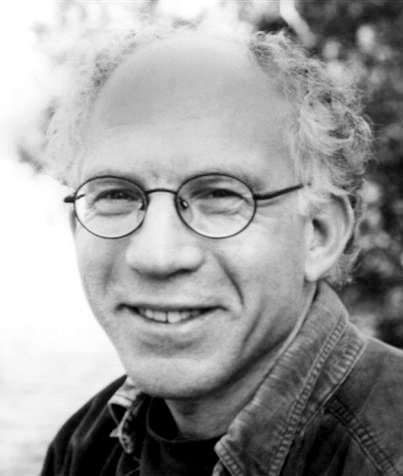The many sounds of silence
Parashah Yitro contains some of the most sublime passages in the Torah.
The best-known section, of course, is the Aseret Hadibrot, the 10 utterances/pronouncements, better known as the Ten Commandments.
Our tradition has a tendency to categorize things, such as the number of positive mitzvot (248) and “negative” mitzvot (365), or the different kinds of mitzvot, for example beyn adam lakhavero (between people) and beyn adam laMakom (between humans and the Omnipresent One).
The two tablets of the Aseret Hadibrot can also be seen as divided, with the first five pronouncements invoking God’s name and the last five referring to behavior between human beings. Traditionally, ethical and ritual mitzvot are both part of living a holy life. The fact that both are carved on the tablets reinforces the impression of their shared importance. One who lives a ritually meticulous life, but neglects treating other humans ethically, is certainly no more “pious” than someone who treats humans ethically while neglecting all the ritual mitzvot.
The Torah depicts the revelation at Mount Sinai as a national experience; the entire Jewish people stood at the base of the mountain. Our sages went even further, saying that every Jewish soul stood there, not only those living at the time.
And then the question naturally arises, what did everyone experience? Could any two people have exactly the same perception of what transpired?
There are different opinions as to what the whole nation beheld. Some claimed that our ancestors heard all 10 utterances, some claimed only the first two. Still others said that they only heard the first word – Anokhi (“I” or “I am”) – and that all the rest of the Torah naturally follows from that very first word proclaiming God’s existence.
Personally, I find the most powerful commentary in the Hasidic text “Yalkut Menakhem” by Menakhem Mendel of Rimanov. He suggests that in the opening verse of the Aseret Hadibrot, “maybe all we heard from the mouth of the Blessed Holy One was the letter aleph of Anokhi.” And, as we know, aleph is a silent letter.
But there is silence and there is silence. There is the silence of emptiness, i.e., nothing there to make a sound. And there is the silence of deep fullness. This can be, for example, a meditative state that emerges after chanting a verse or phrase that attempts to cultivate an awareness of the Presence of the Eternal One. The chanting prepares one’s consciousness for entering the deep fullness of silence.
There are “echoes” of this silence throughout our tradition. In Mishnah Pirkei Avot 1:17 (the Chapters/Ethics of the Ancestors), Shimon, the son of Rabban Gamliel, says: “All my days I was raised among the sages and I found nothing better for a person than silence.”
But maybe the best example is the passage about Elijah the Prophet found in the First Book of Kings, 19:11-12.
Elijah has taken 40 days to walk to Mount Sinai (though it’s called Horeb – Khorev – in this passage), “And there was a great and mighty wind, splitting mountains and shattering rocks in the presence of the Eternal One, but the Eternal One was not in the wind. And after the wind – an earthquake, but the Eternal One was not in the earthquake. And after the earthquake, fire, but the Eternal One was not in the fire. And after the fire, kol d’mamah dakah,” which I would translate as “the subtle sound of silence.”
As powerful and evocative as language is, sometimes it can only point to or lead us to the threshold of what we wish to express. We never utter God’s name. The letters that comprise it are all the special Hebrew letters that also act as vowels, and vowels are the “breath” of words. Who could truly utter the name with the proper kavana (consciousness) that it requires? How could we not diminish its potency by uttering it with anything less than the requisite consciousness? We approach it, but never say it, thus preserving its power. That awareness of the ineffable name introduces us to the Ten Commandments.
It is often said that the Jewish sense of holiness has to do with separation, as, for example, separating Shabbat from the rest of the week. I would like to suggest that “holiness” has more to do with separating our awareness, our consciousness, from a mundane perspective to an awareness of the spiritual dimension that pervades all things, as it says in Isaiah 6:3: “God’s Presence fills all the earth (m’lo khawl ha’aretz k’vodo).”
One way of cultivating an awareness that transcends the mundane is keeping Shabbat, as it says in the Ten Commandments: “Remember the day of Shabbat to sanctify it.”
The materialism of our society too often conveys the message that our value is crassly measured in dollars, rather than in the quality of our souls. It’s this same kind of materialistic thinking that is willing to exploit and sacrifice our very planet for its own profit. We need Shabbat as much as ever, maybe more, to realign our sensibilities to the spiritual dimension of our existence.
I like to understand the root of the word “Shabbat” as not only meaning “to rest,” but also containing within it the idea of “returning” (shoov, as in teshuvah) to an awareness of the Eternal One. I think of the revelation at Mount Sinai not as merely occurring in a physical place, but as a spiritual destination, a place of higher awareness, with the mitzvot as actions that sensitize our consciousness to the Divine Presence that fills everything. Maybe that’s how we’ll become, as it says in Parashah Yitro 19:6, “a kingdom of priests and a holy nation.”
MARK ELBER is the rabbi of Temple Beth El, in Fall River, and the author of “The Sacred Now (Cultivating Jewish Spiritual Consciousness)” and “The Everything Kabbalah Book.”








